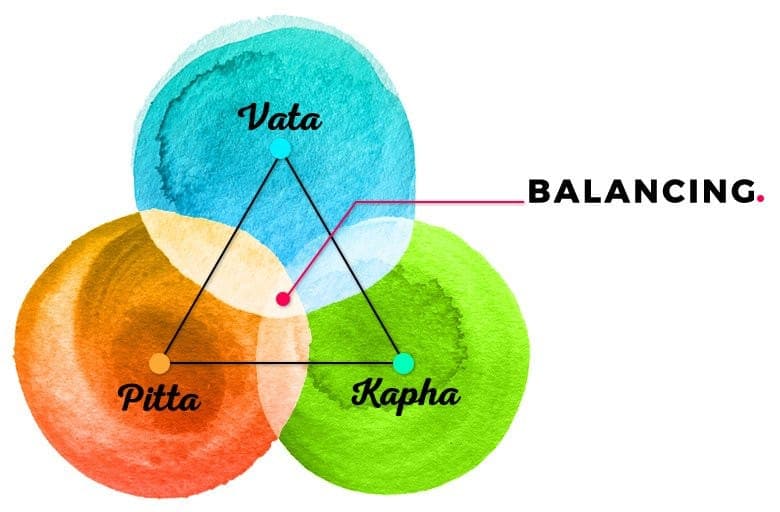
14 Mar 2024 - News
Ayurvedic Insights into Managing Obesity
Obesity is an issue of great concern to people all over the globe, which causes several health problems and a poor quality lifestyle. This differs from the usual approach that tends to focus on eating habits and exercising by using Ayurveda, a traditional Indian system of medicine, which takes into account a more holistic way of managing obesity.
This article provides information concerning Ayurvedic view on obesity; offering readers a step-by-step guide to understanding as well as addressing this problem naturally.
Understanding Obesity
Modern vs. Ayurvedic Understanding
In contemporary medical terms, overweight results mainly from unbalanced energy equation with calorie intake being higher than caloric use. Conversely, Sthulya (obesity) is described in Ayurveda as an imbalance within the body’s doshas - Vata, Pitta and Kapha – while at the same time emphasizing mental-physical-environmental equilibrium for good health.
Causes of Obesity in Ayurveda
Ayurveda has outlined various reasons behind obesity including unhealthy eating habits, inactive lives, genetic factors and psychological imbalances. Ama or toxin accumulation also contributes greatly towards weight gain in people.

Ayurvedic Insights
Body Types and Obesity
According to Ayurveda, those whose Kapha dosha is dominant are more prone to becoming obese. This kind of body type has a comparatively low metabolism rate and fat storage tendency.
The Role of Digestion
Agni (the digestive fire) plays an essential role in weight management as per Ayurveda. A well-balanced Agni ensures good digestion, thus preventing ama accumulation, which is vital in avoiding obesity.
Ayurvedic Diet - Foods to Favor / Avoid
Light, dry and hot foods that balance Kapha dosha form the basis for an Ayurvedic diet aimed at controlling obesity. Examples are fruits such as apples and berries, vegetables like spinach and kale, and grains like barley or millet. Heavy, oily and sweet foods that aggravate Kapha dosha should be reduced; these include dairy products, fried foods, as well as sweeteners. It’s better if you can find out what diet suits you by seeking advice from a qualified Ayurvedic practitioner, who will review your dosha balance plus health status.

Lifestyle Changes
Daily Routines
Establishing a daily routine that involves waking up early, practicing yoga exercises as well as engaging in physical activities is important for balancing Kapha while taking care of one’s weight.
Exercise and Yoga
Regular exercise, particularly activities that are invigorating and warming, can significantly aid in weight loss. Yoga asanas such as Surya Namaskar (Sun Salutation) are particularly beneficial for stimulating digestion and promoting balance.

Common Ayurvedic Herbs for Treating Obesity
They include Guggulu, Triphala and Garcinia that aid in digestion, detoxification and weight management respectively.
Panchakarma for Treating Obesity through Detoxification
Panchakarma can be effective for weight loss since it eliminates toxins from the body as well as balances the doshas via a series of detoxifying treatments known as Panchakarma.

Meditation Techniques to Manage Stress
Practicing meditation and Pranayama (breath control) is essential to cope with stress and emotional imbalances often linked to obesity.
When to Seek Professional Help before Trying Other Products-Getting Medical Consultation
However, personalized advice and treatment should be sought from a qualified Ayurvedic practitioner who will help you determine whether it is safe or suitable depending on your individual circumstances.
Ayurveda offers a profound understanding of obesity, emphasizing the importance of balance and harmony. By integrating Ayurvedic principles into daily life, individuals can achieve sustainable weight management and improved well-being.
FAQs
1. Can Ayurveda help everyone with obesity?
Most obese people will benefit from Ayurveda because it is holistic in its approach to health and wellness, taking into account individuality in terms of bodily constitution, lifestyle, and emotional well-being. However, the success of Ayurvedic treatments may differ depending on various factors like compliance with the prescribed dietary plan, duration and intensity of obesity as well as other medical conditions if any.
2. Are there any side effects of Ayurvedic treatments for obesity?
Ayurvedic treatments are safe when properly recommended by a seasoned practitioner, plus they do not have serious side effects. Nevertheless, each person is unique and people’s reactions to herbs or treatment protocols may be different. It is important therefore to ensure that authentic high quality Ayurvedic herbs are sourced and that the doctor’s directions are adhered to accordingly.
3. How do I know which Ayurvedic diet is right for me?
The Ayurvedic diet is designed around one’s dosha (bioenergy) – Vata, Pitta or Kapha. To determine which diet is best for you, it would be advisable to see a qualified Ayurvedic practitioner who can access your dosha balance and health condition. Broadly speaking, this diet should focus on whole foods which are fresh while also balancing the six tastes (sweet, sour etc.) so that they can complement your body’s own needs. Knowing your dosha helps you understand how it affects your health, thus directing you towards what nourishes you most.
4. Can Ayurvedic treatments and lifestyle recommendations replace conventional weight loss methods?
Aside from Ayurvedic treatments that can be used alongside or in place of traditional weight loss strategies, there is a larger, more comprehensive approach in Ayurveda that encompasses the physical obesity aspect, as well as psychological and spiritual dimensions to it. This doesn’t mean immediate solutions, but long term plans to help one change lifestyle and dietary habitually. Nonetheless, when dealing with extreme obesity or health issues, Ayurvedic processes should go hand in hand with modern medical practices.
Christianne Madrazo. Certified Ayurvedic Practitioner, graduate of Mount Madonna Institute, College of Ayurveda in California, and student of Dr. Vasant Lad, one of the world’s foremost experts in Ayurveda.
AyurVida Wellness and Clinic is located in Mission Hills, San Diego, CA.
FOR ASSISTANCE TEXT 619-637-0201

CONTACT US
PHONE:
619-291-6614
For immediate assistance:
TEXT 619-637-0201
ADDRESS:
1611 West Lewis San Diego CA 92103
